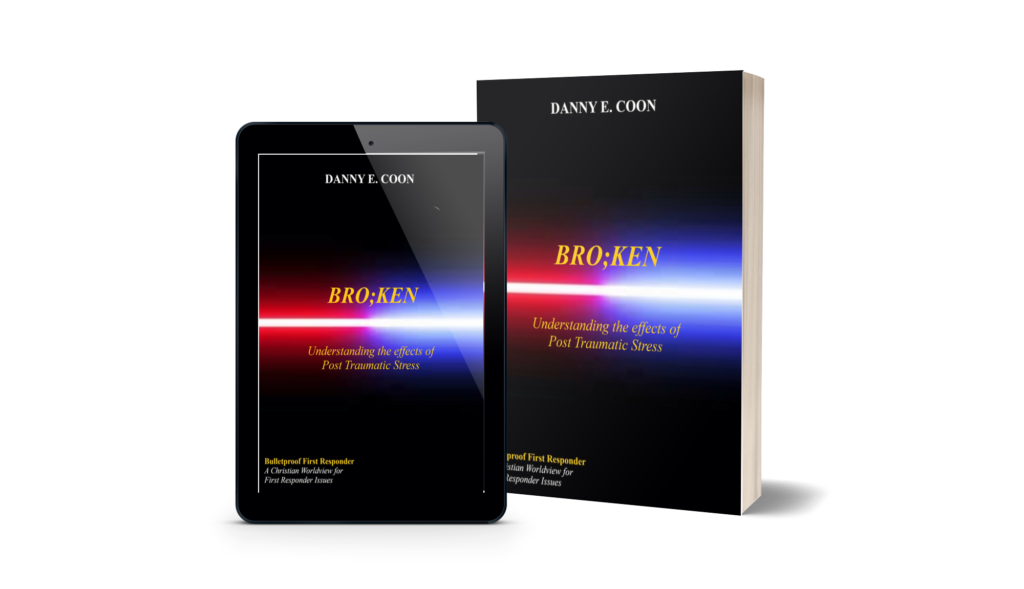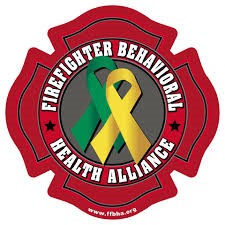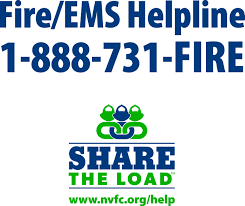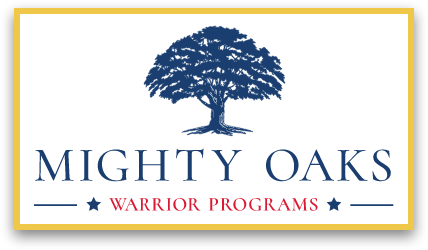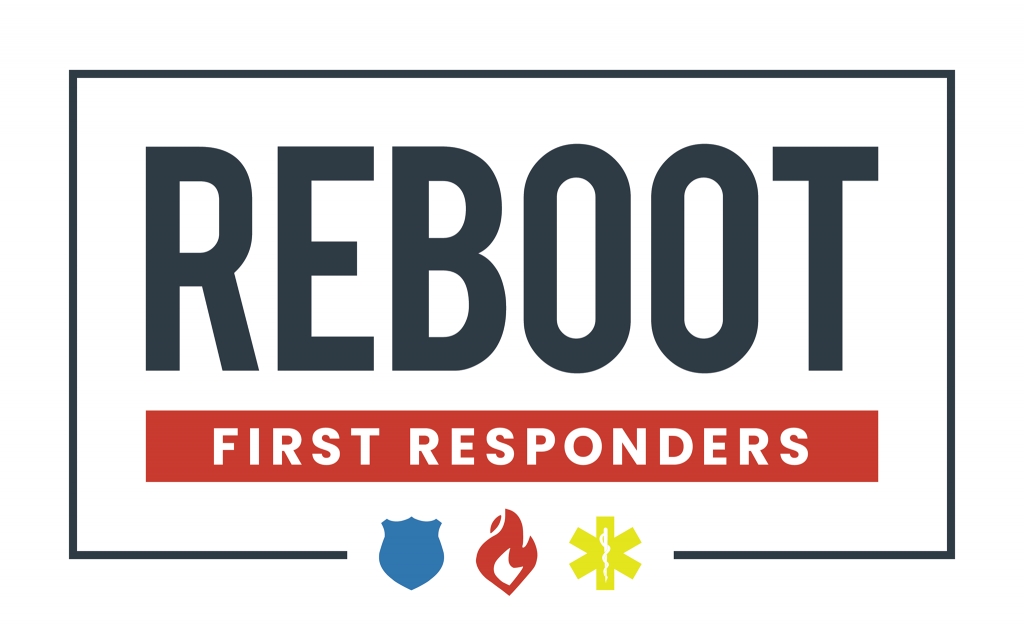Be A Resilient First Responder
 The American Psychological Association defines Resilience as “the process of adapting well in the face of adversity, trauma, tragedy or significant sources of stress.”[1] In other words, it is the ability to overcome and move on with life no matter what the difficulty. People who are resilient do suffer traumatic events and tend to have suffered considerable emotional distress. However, they are able to recover from the event and move forward in life.
The American Psychological Association defines Resilience as “the process of adapting well in the face of adversity, trauma, tragedy or significant sources of stress.”[1] In other words, it is the ability to overcome and move on with life no matter what the difficulty. People who are resilient do suffer traumatic events and tend to have suffered considerable emotional distress. However, they are able to recover from the event and move forward in life.
5 Trust in the Lord with all your heart and do not lean on your own understanding. 6 In all your ways acknowledge Him, And He will make your paths straight.
Proverbs 3:5-6 NIV
Experiencing hard times is common, in fact, Jesus told us that life would be hard, that we would all experience hard times. He also reminded us that He would always be with us. Look past your troubles, stop dwelling on the past and put your mind on Jesus.
By being resilient, First Responders learn how to handle the traumatic events, the major disasters, the daily stressors and the emotional impacts of the job. They become more relaxed, flexible in their decision making, and generally happier.
We know that unmanaged, constant exposure to stress, adversity, and emotionally draining scenes will compromise our relationships, health, and emotional well-being. We become overwhelmed, depressed and possibly suicidal. Many may turn to abusing alcohol, prescription drugs or engaging in bad behavior, only to make things worse.
First Responders need to understand the stressors they face. In his Epistle to the Ephesians, the Apostle Paul tells us that we need to be strong on the mighty power of God. He tells us to wear the right “armor” and wants us to understand where the struggle comes from. We spend a lot of time dealing with issues that are not important, Paul tells us to focus on the true cause of the problem, the spiritual forces of evil that are trying to steal your soul.
11 Put on the full armor of God, so that you can take your stand against the devil’s schemes. 12 For our struggle is not against flesh and blood, but against the rulers, against the authorities, against the powers of this dark world and against the spiritual forces of evil in the heavenly realms.
Ephesians 6:11-12 NIV
Being a resilient First Responder involves mental training and changes in lifestyle. Many live on the physical and emotional edge. Their lifestyle is fueled by adrenaline and caffeine, poor eating habits and a lack of sleep. Because of the hypervigilance, they are on a physical and emotional rollercoaster waiting to be derailed.
 Resilience is a learned behavior and starts with a commitment of taking care of yourself. Getting enough sleep, having healthy eating habits, and maintaining a healthy lifestyle puts you on the proper course of being resilient.
Resilience is a learned behavior and starts with a commitment of taking care of yourself. Getting enough sleep, having healthy eating habits, and maintaining a healthy lifestyle puts you on the proper course of being resilient.
The National Heart, Lung and Blood Institute (NHLBI) reports that sleep helps the brain process the stressors we face. When you sleep, your body regenerates itself. Sleep prepares your brain for the next day and heals your heart and blood vessels.
Your emotions, behavior, and ability to accept change are all affected by a lack of sleep. Sleep deprivation leads to additional stress which can lead to depression, risky (bad) behavior, and suicide. Continual sleep deficiency may lead to heart disease, kidney disease, diabetes, high blood pressure, and stroke.
A well balanced and healthy diet is a must to reduce stress. The American Heart Association states that excessive use of caffeine and/or alcohol increases blood pressure. Stress causes an increase in the intake of fatty and sugary foods, interfering with the brains’ ability to identify stress.
Eating healthy, staying hydrated and limiting the intake of alcohol, caffeine, fat, salt and sugar helps your body stay strong and ready for whatever the world throws at you.
Maintaining healthy and strong relationships with partners, friends, and peers helps you keep a calm and positive outlook by building a personal support network. The American Psychological Association has recognized that strong communication skills and the ability to manage strong feelings and impulses are two factors in building resiliency.
Being resilient requires being flexible and maintaining balance in your life. Nothing a First Responder does is routine. Every situation is different and being flexible allows you to make decisions and handle stressful circumstances as they evolve. Flexibility allows you to adapt to the constantly changing work environments and allows you to remain positive while facing setbacks.
Be a faith-based resilient First Responder. The Bible plays a significant role in helping people deal with stress. In fact, being resilient is a biblical norm for Christians, the Apostle Paul tells us to overcome hardship and temptation,
21Do not be overcome by evil, but overcome evil with good.
Romans 12:21 NIV
The Bible tells us to press on or move forward,
13Brothers and sisters, I do not consider myself yet to have taken hold of it. But one thing I do: Forgetting what is behind and straining toward what is ahead, 14I press on toward the goal to win the prize for which God has called me heavenward in Christ Jesus. 15All of us, then, who are mature should take such a view of things. And if on some point you think differently, that too God will make clear to you.
Philippians 3:13-15 NIV
And James 1:12 tells us to persevere in the face of trials.
12Blessed is the one who perseveres under trial because, having stood the test, that person will receive the crown of life that the Lord has promised to those who love him.
James 1:12 NIV
There are many Old and New Testament stories of those who showed great resilience. Jesus Christ, the Apostle Paul, King David, Job, Abraham, and Moses all demonstrated resilience in the face of great adversity. For us, by believing in Jesus Christ, we are naturally resilient as we are held by God’s great power.
8We are hard-pressed on every side, but not crushed; perplexed, but not in despair; 9persecuted, but not abandoned; struck down, but not destroyed.
2 Corinthians 4:8-9
Faith unlocks the promises of God and it shows us the power of God and it turns dreams into reality and it gives us the power to hold on in tough times. But faith doesn’t always take you out of the problem. Faith often takes you through the problem. Faith doesn’t always take away the pain. Faith gives you the ability to handle the pain. Faith doesn’t take you out of the storm. Faith calms you in the midst of the storm.[2]
IF YOU HAVE THOUGHTS OF SUICIDE GET HELP NOW
Law Enforcement Copline (800) 267-5463
Firefighters / Medics Fire/EMS HELPLINE (800) 731-FIRE (3473)
- “The Road to Resilience,” American Psychological Association, Accessed September 24, 2019, https://www.apa.org/helpcenter/road-resilience ↑
- Pastor Rick Warren, “Faith Produces Resilience,” https://www.christianity.com/devotionals/daily-hope-with-rick-warren/faith-produces-resilience-daily-hope-with-rick-warren-dec-29-2015.html December 29, 2015. ↑

